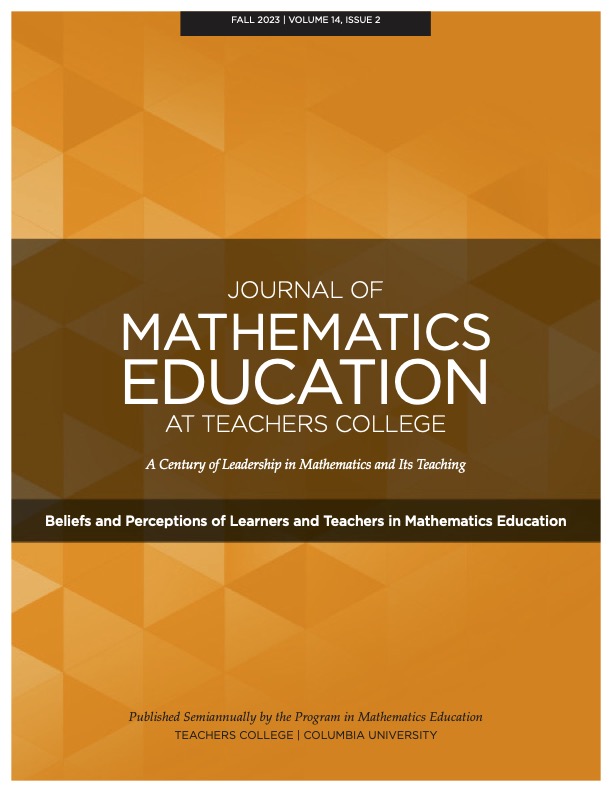How Pre-Service Teachers Define “Good” Mathematics Teaching and Learning
Main Article Content
Abstract
Mathematics self-efficacy (beliefs about oneself as a learner of mathematics) and mathematics teaching efficacy (beliefs about oneself as a mathematics teacher) are important constructs that influence pre-service teachers’ (PTs’) learning and teaching (Bandura 1986). However, less is known qualitatively about how PTs define good teaching and learning when they make efficacy judgments such as, “I am good at learning mathematics” or “I am good at teaching mathematics.” This qualitative case study used journaling to examine 23 elementary PTs’ definitions of being good at doing and teaching mathematics. Our findings suggest PTs define being good at mathematics in a variety of ways, including receiving good grades, being fluid (quickly and successfully doing procedures), and having the ability to apply mathematics to new contexts. PTs also held a variety of definitions of good mathematics teaching, including focusing on student understanding, using group work and manipulatives, and having passion. These results have implications for researchers studying self-efficacy and teaching efficacy as well as for teacher educators hoping to engage PTs fully in their classrooms.
Article Details

This work is licensed under a Creative Commons Attribution 4.0 International License.

